The Year 1 Family Afternoon activity took place in October, bringing parents into classrooms to participate in Chinese, English and Maths games with the students. Family Afternoon‘s predecessor was the ‘Maths Night’ , which began soon after the school was founded to bring parents and students together to experience the fun of Maths in the form of a game while stimulating enthusiasm for maths among students.
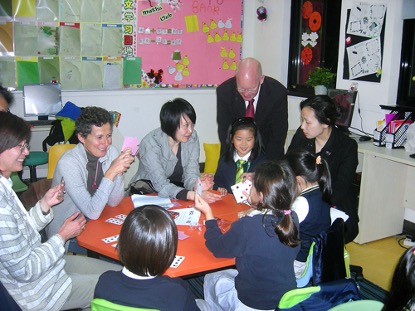
Maths Night at Wuding campus in 2008
Year 1 Cohort Leader Rachel Wong explained that after more than a month of primary school life, new Year 1 students are beginning to adapt to the school routines, as the rules and requirements of every aspect of school life become clearer, but parents are still full of curiosity about what their children are learning, and about activities in school. So, in this way, students can show their parents how they are doing in class, and enjoy learning with their parents. Parents, therefore, have a valuable opportunity to witness firsthand how learning unfolds in the classroom. Through a variety of interactive activities and games, they can engage in an entertaining experience that deepens their understanding of how they can support their children's progress in various subjects.
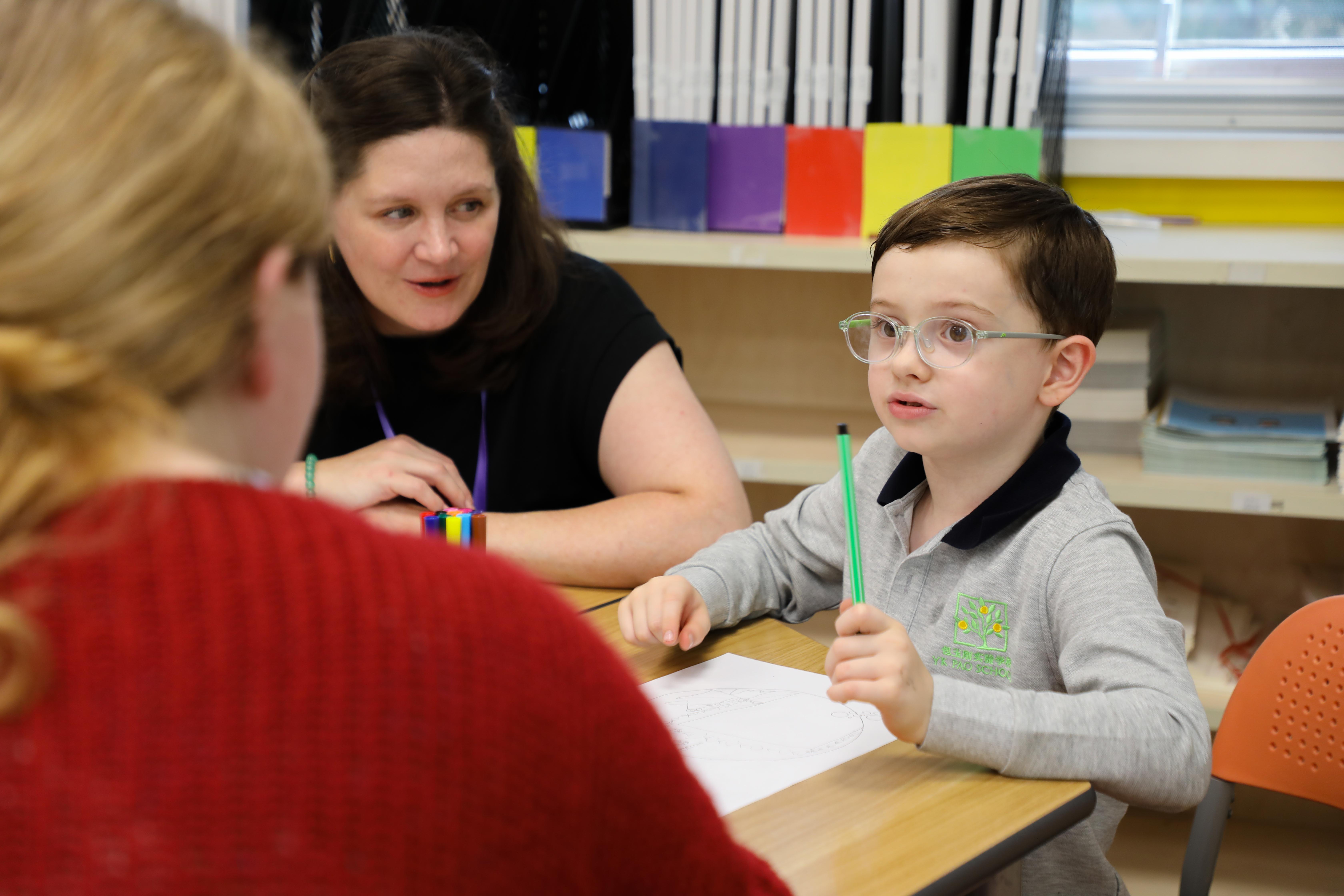
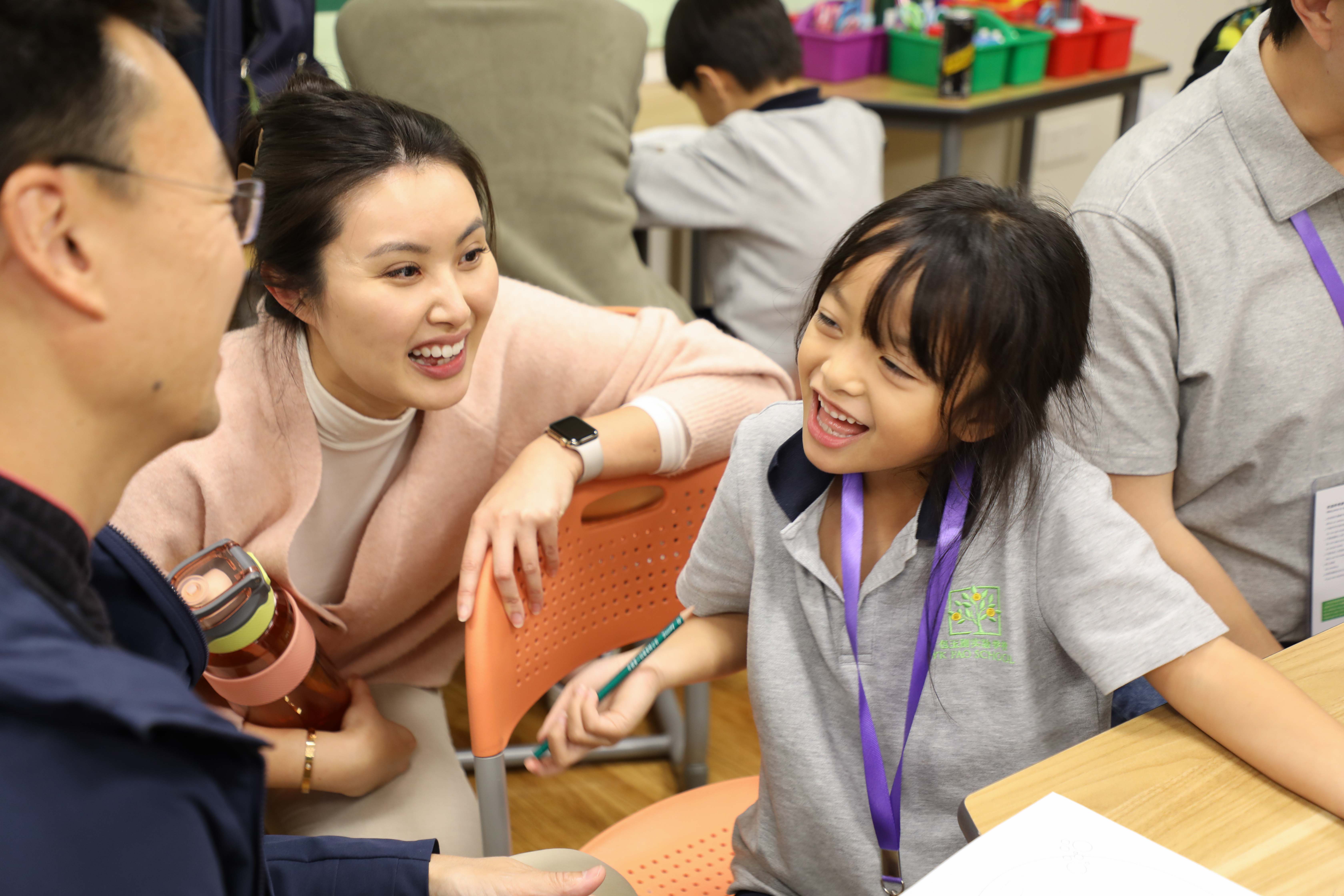
As previously discussed in the article on Education Reflection | Developing Cognitive Skills Through Play, the most valuable activities for a child’s development are opportunities for free play and spending time as a family, either travelling together or engaging in some sort of game or activity. These activities may not appear directly connected to learning, but in fact, they are highly valuable for holistic development, helping to shape children emotionally and socially into the amazing young people they become. It also helps them develop the cognitive abilities they need to succeed academically, that is: the ability to think, understand, communicate, remember, imagine, and predict.
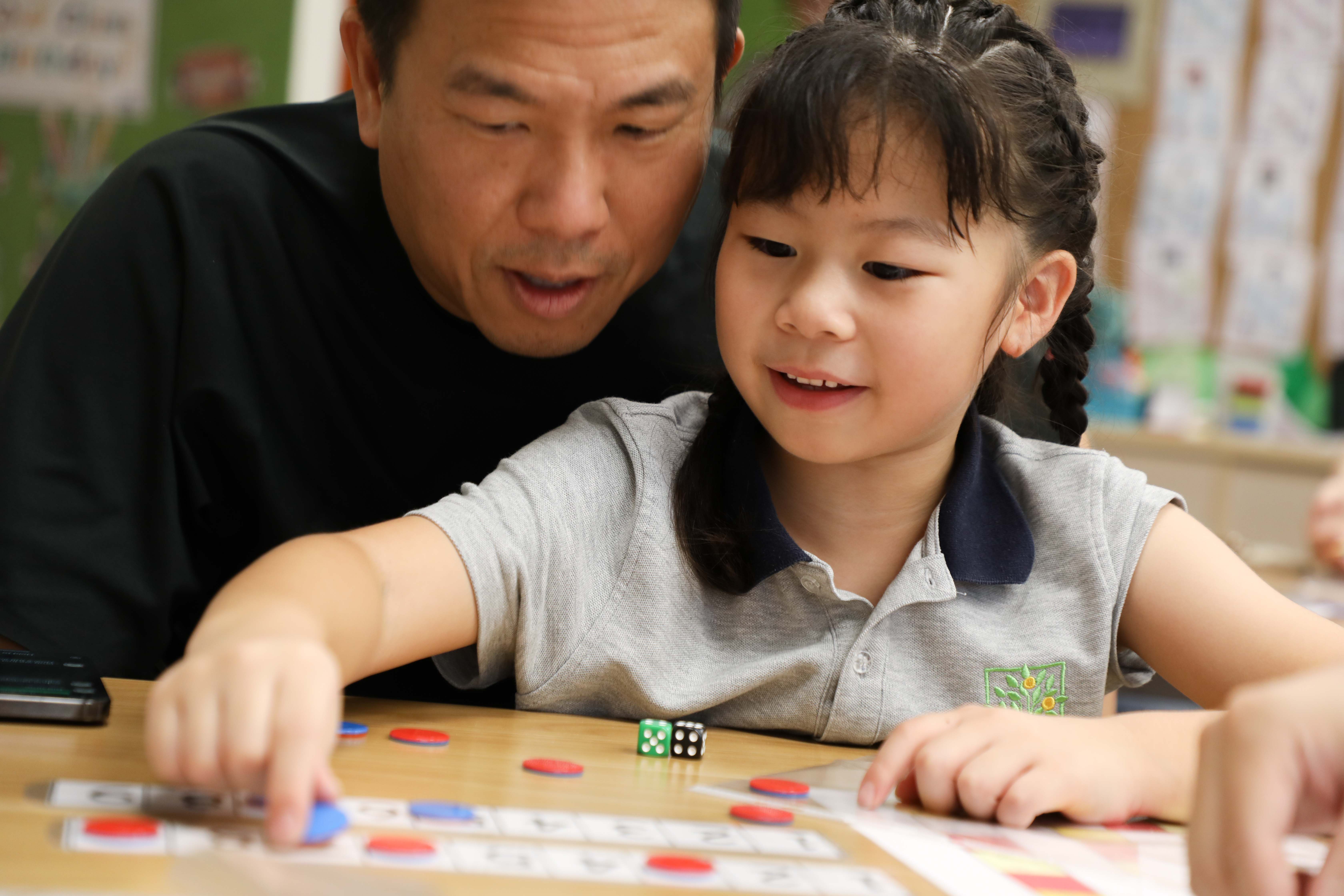
Chinese
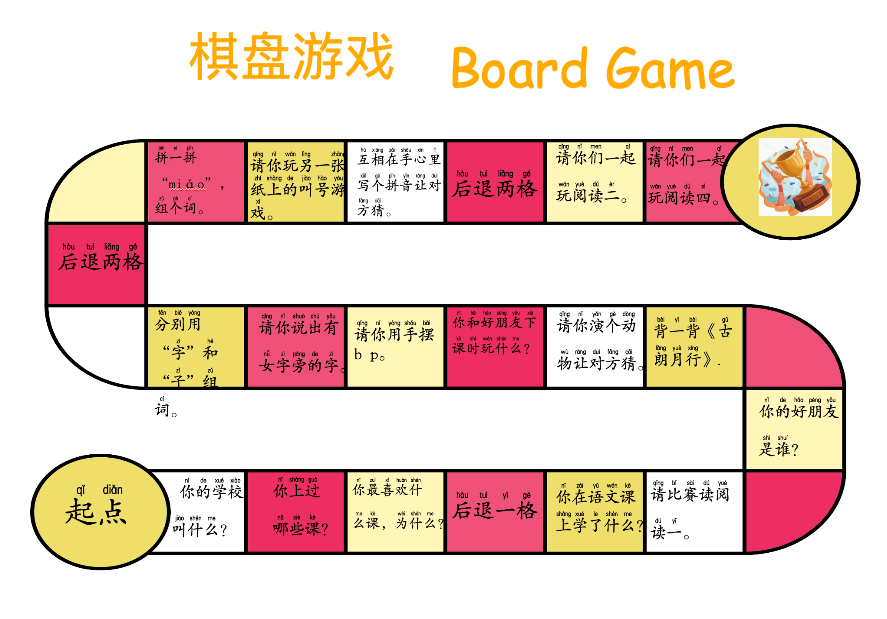
In the Chinese activity, students and parents played a version of the game ‘Snakes and Ladders’, with both sides rolling the dice and completing the tasks corresponding to the squares they landed on. These tasks all related to the content of recent Chinese lessons, and included Chinese characters, pinyin and poems, such as ‘Introduce your favourite lesson, and explain why it is’, ‘Please use your hands to swing b & p’, ‘Form words with 字 and 子’, ‘Finish the reading task together’, ‘Recite the poem Gu Lang Yue Xing’, and others in the same vein. These tasks provided students with the chance to consolidate their learning and to show their parents what they have learned in the classroom while enjoying a game together.
English
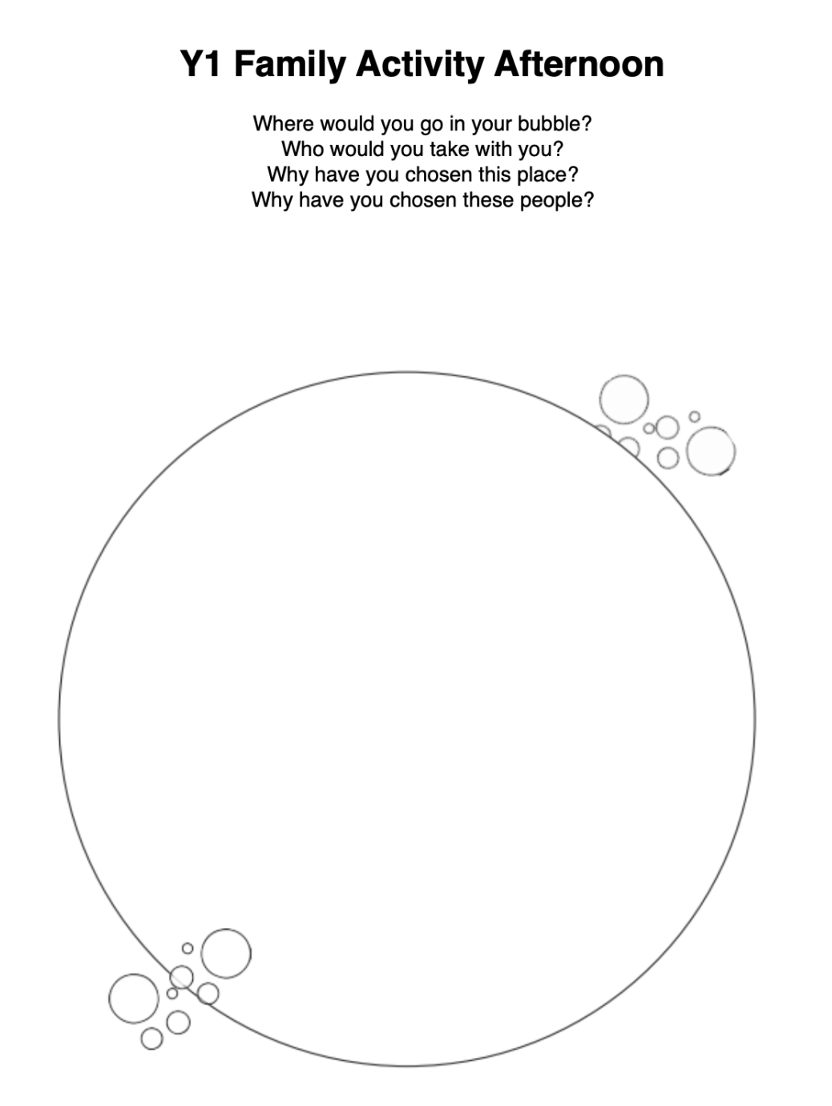
For English, students exchanged their thoughts about the story ‘Bubbles’ and discussed an imaginary trip they would go on in their own bubbles: If you had a magic bubble, where would you want to go? How would you feel travelling in your magic bubble? Who would you take with you? Why? In the process of focusing, sharing and presenting their ideas, the students thoroughly practised their use of language and honed their public speaking skills.
Math
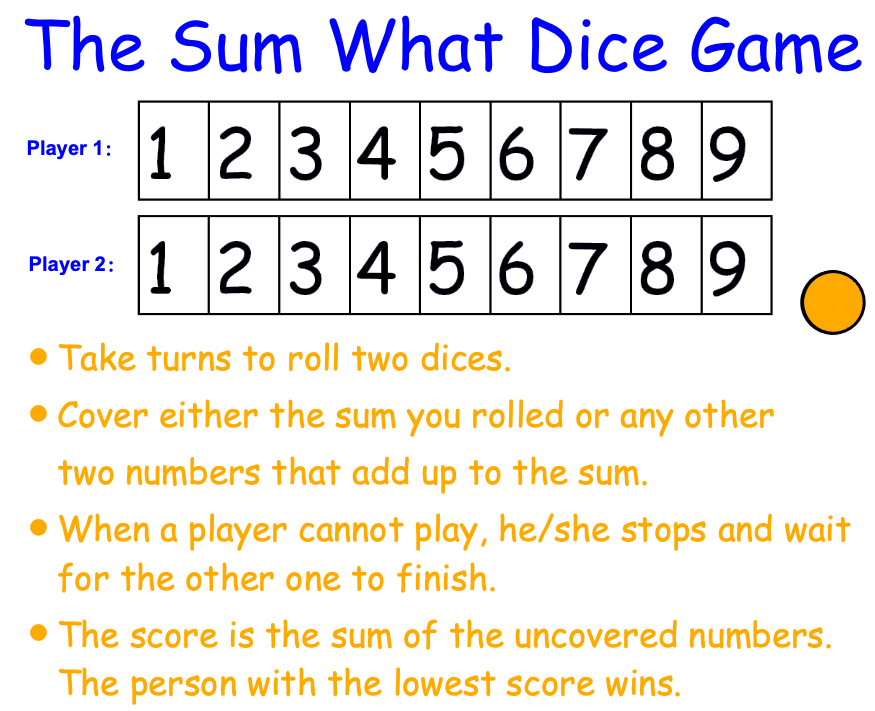
For Maths, students and parents worked in pairs to play the ‘Sum what Dice’ game, which tests the arithmetical ability to Make 10. Both players take turns to roll two dice and then cover either the sum he/she rolled or any other two numbers that add up to the sum. For example, if the two dice rolled are 3 and 5, you can cover 8 or any two numbers that add up to 8. If there are no more numbers to cover after the dice are rolled, he/she stops and waits for their partner to finish. Scoring is based on the sum of the uncovered numbers. The person with the lowest score wins. Students not only practised addition within ten through the game but also grasped the secret of winning through just a few rounds of the game - start by covering the larger numbers first.
After the event, students and parents were still talking enthusiastically about winning and losing the game. In response, Y1 Rosabelle's dad shared how much he appreciated these interactive games. “When I grew up in Canada, we didn’t have interactive games like this. Now parents are coming to join in playing the games with them, and I think that's very fun.”
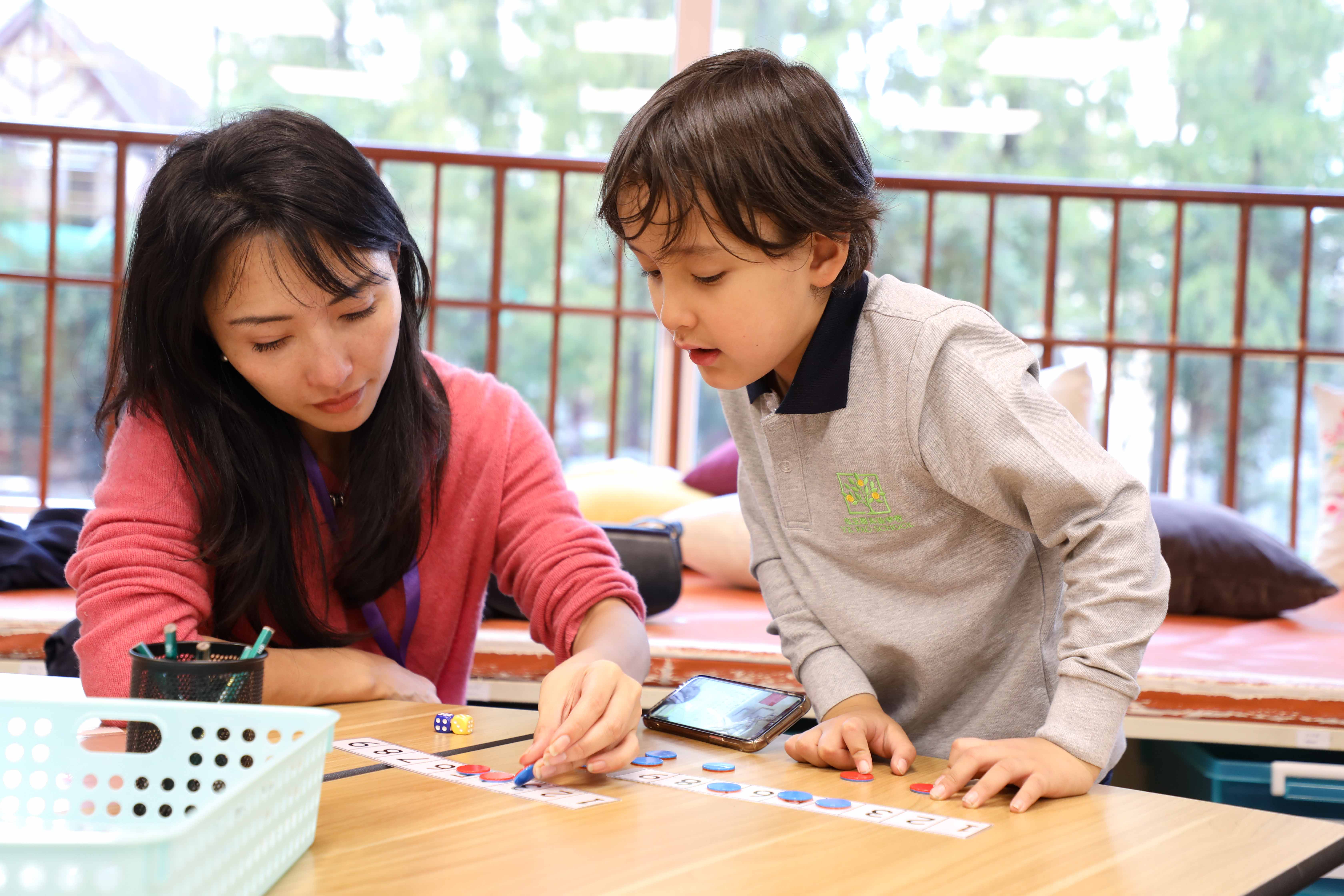
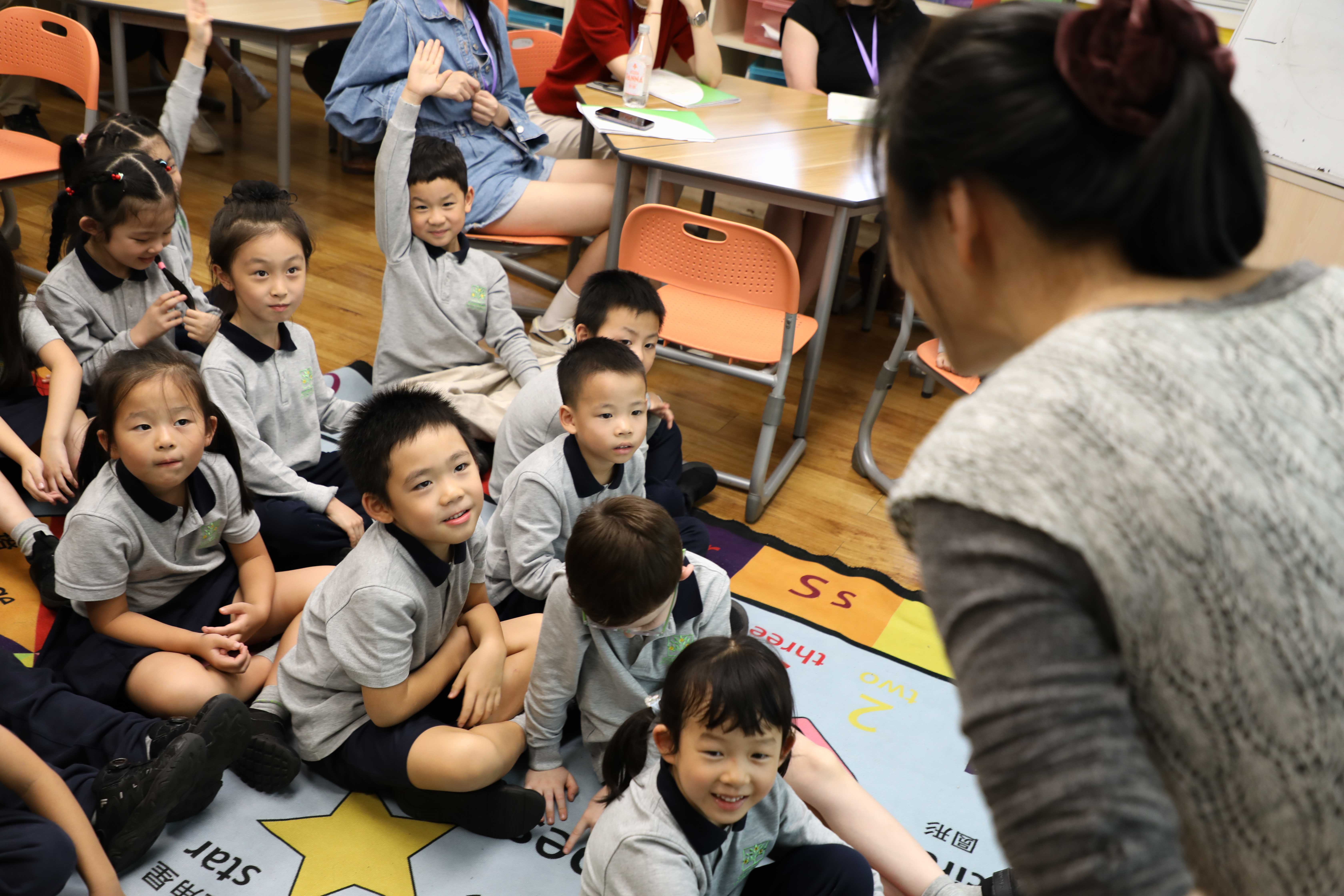
Speaking of his daughter's growth over the course of just one month, Rosabelle’s dad commented on the “strong sense of community felt by everyone” at Pao School. As a result, Rosabelle has become more active in social activities, “I think she's very happy at home now, as well as at school”, he said.
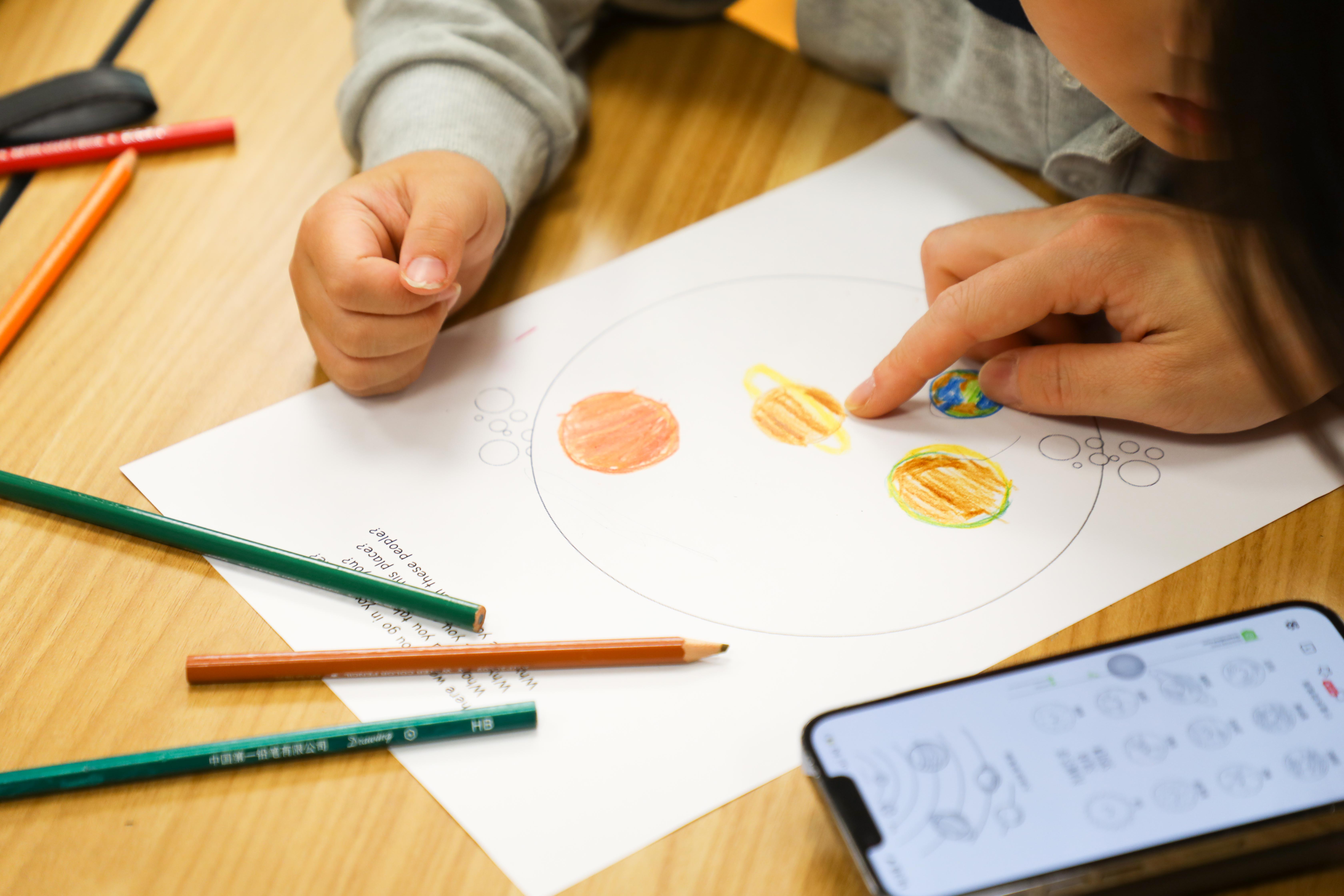
The rich variety of activities in the early in the history of the school included Book Week, camping, and folk dance nights, some of which have been preserved in their original form to this day, and some of which have been extended and improved. However, as Crick Chen, the Primary Deputy Principal, who was part of the founding team, said: "What has remained consistent since the beginning is that we have adhered to the tripartite mission of Pao School, cultivating the comprehensive skills important for students’ growth, including both practical/hands-on abilities and academic skills”. According to Ms. Chen, the school strives to create an authentic learning environment in which theory can be applied through various activities and games. The knowledge, skills, and memories that students take away from these experiences are the most important aspects of their educational journey at Pao School.
Parent-child activities such as these are a crucial part of home-school co-operation, and we always hope that parents can maintain communication with the school to achieve the same level of harmonious involvement as the students mature.
-- Crick Chen, Primary Deputy Principal